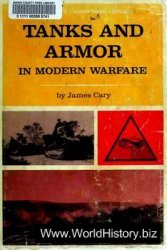The Panic of 1819 worsened tension between the sections, and growing sectionalism repeatedly influenced the politics of the 1820s. The most sharply divisive event was the Missouri Crisis of 1819-1820. Many of Missouri Territory's settlers were native southerners who owned slaves, and they petitioned for Missouri's admission as a slave state. But New York Congressman James Tallmadge's amendment to the admission bill called for the gradual abolition of slavery in the proposed new state. This was the first attempt to restrict the expansion of slavery since the Northwest Ordinance of 1787. The Tallmadge amendment was fiercely debated—it passed in the House but lost in the Senate.
The debate generated by the Tallmadge Amendment did not deal with the morality of slavery or the rights of blacks; what was at stake was political influence. Neither was it about the existence of slavery in the Southern states, but rather about it being further extended. At the time there were 11 slave states and 11 free states. Missouri's admission would give the slave states a majority, thus frightening northerners who already complained of the advantages the South gained from the Three-Fifths Compromise and who also feared having to compete with slave labor. Still, the free states had a 105-81 edge in the House of Representatives, as the North's population was growing more rapidly. Ironically, the North's more rapid growth was partially attributable to slavery, since immigrants did not want to go where they would have to compete with slave labor.
49 In the 1869 case of Texas v. White, the Supreme Court held secession to be unconstitutional.
219
The moral issue of slavery was not yet a serious question for open debate—that would come with the advent of the abolitionist movement about a decade later. Nevertheless, the Missouri crisis was serious and a significant harbinger of things to come. Henry Clay, known as the "great compromiser," stepped in. Clay took advantage of the fact that Maine had applied for admission as the 23rd state, making it possible to strike a balance. The Missouri Compromise admitted Missouri as a slave state and Maine as a free state. The Thomas Amendment barred slavery north of the 36x30° latitude in the old Louisiana Purchase Territory. (The line runs along the southern boundary of Missouri.) Southerners accepted the terms since they believed the banned territory was environmentally hostile to slavery anyway, thinking it was part of the "great American desert."
Clay also worked out the Second Missouri Compromise when the Missouri constitution contained a clause that banned free blacks from migrating the state. It stated that the General Assembly had the duty to pass laws "To prevent free negroes and mulattoes from coming to, and settling in, this state, under any pretext whatsoever." Clay's Second Compromise said that the exclusionary clause "shall never be construed to authorize the passage of any law _ by which any citizen of either of the States in this Union shall be excluded from the enjoyment of any of the privileges and immunities to which such citizen is entitled under the Constitution of the United States."
The second compromise was accepted, but it was reaiiy accomplished by smoke and mir-rors—it said, in effect, that the Missouri Constitution did not mean what it said. But in the climate of the times, it was accepted with relief, and the country did not have to confront the slavery issue again until 1850, but by that time the abolitionist movement had thoroughly transformed the dynamics of the debate. It would be much harder next time.
Reaction to the Missouri Compromise was mixed: it was seen as a temporary solution at best; strong feelings about the slavery would continue to smolder. To Thomas Jefferson, the issue sounded like a "fire bell in the night"44; he had previously written, as inscribed on the walls of the Jefferson Memorial:
God who gave us life gave us liberty. Can the liberties of a nation be secure when we have removed a conviction that these liberties are the gift of God?
Indeed I tremble for my country when I reflect that God is just, that his justice cannot sleep forever. Commerce between master and slave is despotism. Nothing is more certainly written in the book of fate than that these people are to be free.




 World History
World History









